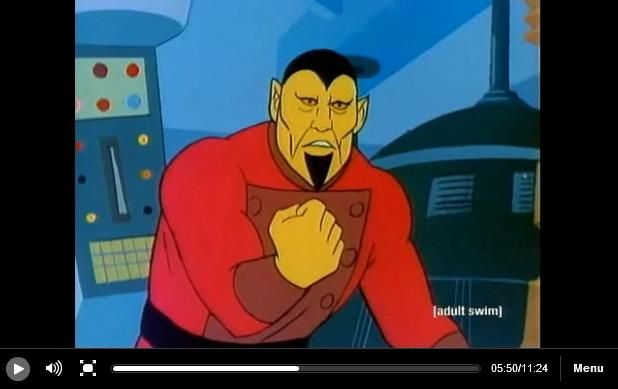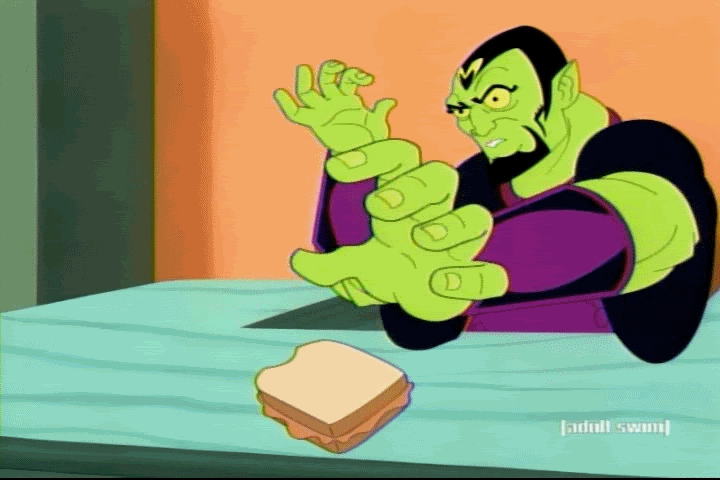Sometimes,
I write fanfiction. Off and on. I’ll go through a dry spell of months
or even years, and then the urge hits me again. It might go away when I
go pro, it might not. I don’t hate myself for doing it at all, though
for me it’s become a more private activity since the early 2000s.
It's
very difficult for a casual insider to distill fanfiction, and other
creative fannish activities, into purely objective terms so that others
can understand why they do them. I'm not very deeply absorbed into the
creative aspects of fannish culture, but I'm inside it enough that on
some level, creative fannish activities (fanfiction, fanart, cosplay,
and whatever) are hard to put into concrete terms, and especially to
imagine as something bizarre or strange. They simply are, such an accepted part of my landscape that I can’t imagine them not existing.
So
I'm not going to try to define a universal motive behind writing
fanfiction or other creative fannish activities; I just want to talk
about my own experiences with fanfiction (since my involvement with
other fannish creative projects is almost nil), and what I think drives
me to indulge in it.
My
involvement with fannish creativity probably reached its peak in the
Transformers fandom, which was my first entry into “fan culture”. During
that time, I would actually read fanfiction, think of my own original
characters and settings, and discuss fanfiction with others.
However,
my interests in these things whittled away, until I only wanted to deal
with offical materials and characters, wrote fanfiction only sparingly,
and never read any other fanfiction unless a friend wrote it. I lost
touch with the community around fanfiction, too. I don’t regret what I
did in the past, but that simply isn’t where my interests are anymore.
Yet
when I look back, I understand that my motivations behind these fannish
activites have largely gone unchanged. I try to keep a leash on things,
to not totally disregard what I think are the rules of "good" writing,
but fanfiction is still a self-indulgent activity regardless of how prim
and proper I try to make myself, and I’m comfortable with that.
The
quote "write what you want to write" is still a useful rule for
writers, but writing fanfiction lets you put all this into overdrive.
When you write fanfiction, you are writing a version of other peoples'
stories that you want to see. You privately paste your own preferences and desires over somebody else’s work, which is a big self-indulgence.
My
major reason for writing fanfiction is one of the best examples of
fanfic's self-indulgent nature: I’ll end up preferring a minor
character and want to write a story exploring them further. I prefer to
do this with "side stories", pieces that don't actually upset the
canonical character hierarchy but simply tell stories that happen while
the main characters are off doing something else.
The
thought of actually treating my favourite secondary characters like the
protagonists makes me cringe. I still feel like I should respect those
canon hierarchies, even if it seems contradictory to want to, when I
write stories about the characters I like, rather than the ones the
narrative intends me to focus the most on. I don’t only prefer minor
characters, and don’t want to write stories about every minor character I
enjoy, but it just happens sometimes
A
good springboard for a story can be the desire to "fix" things in a
character's life. If I feel they got an unfinished arc or a bad ending, I
sometimes want to write a story to see what else could have happened,
what else could be done. Or I may simply want to see what lies ahead for
them in life.
However,
something like this is risky. Original fiction writers are taught, and
rightly, to not play favourites with their characters, or to spoil any
one of them. There's just something so saccharine about the idea of
giving your favourite character all they want, like eating too much
sugar at once.
Furthermore,
perfect stories make for boring stories, and boring characters. So,
whenever I realize I want to write a story about giving a character more
than what they've gotten, I feel like I'm juggling a flask of
nitroglycerine.
To
assure myself, I try to give the characters what we're told to give our
original creations: make them suffer, make their mistakes, and don't
give them everything. I try to know what these characters' weaknesses
are, and extrapolate on them. Pragmatism makes a good artist, and too
much sugar can spoil the sweetness of the story. To treat my favourite
characters as if they were innocent makes me wince. I won’t even use the
term “woobie” to describe a pathetic character that I feel for, since
they are not innocent even if they are sympathetic.
Doing
these things are a way to work out small frustrations, rather than
create viable replacements. This doesn’t erase the issue I had with the
official story. I am totally baffled when I see fanfiction considered
equivalent to canon, or “better than canon”. Canon is always better,
simply because it’s canon.
Another
reason why fanfic is self-indulgent is that I can go hog-wild with
sequels and story lengths. I don't have to worry about whether I’m
writing a novel, novella, or short story. I don't have to worry about
whether I’m wearing out characters, or if my new story "really" needs to
be told. I've declared myself finished with a storyline, only to want
to go back to it again and again because I can’t stop myself; fanfiction
is just addictive. While this all can make for crappy writing, it’s
also liberating.
Original
writing is certainly more fulfilling and satisfying for me, but I also
get the fanfiction bug because fanfiction allows for a mental break.
Sure, there are unique challenges that come with writing fanfiction, but
I nonetheless find myself able to write it with ease, to automatically
extend less effort but still be satisfied with the results.
Even
though I try for reasonable plotting, and loyalty to the character's
voices, writing fanfiction is still easier than original fiction, and
doing it lets me recharge mental batteries. Writing fanfiction is
coloured with this sense of unbridled passion plus laziness.
I've
also been a shipper. I try to approach that like I do everything else: I
create conflict, I don't spoil my characters, and don't give them
everything. In this case, I also don't expect the stuff I come up with
to be shown in canon, or put too much energy into defending the pairing
to others, not that I've ever had to.
But
shipping can be a rich source of character development. I try to set up
little challenges for myself as a fanfic writer, to create something
that stretches the narrow boundaries I've set up for myself and try to
make it work, and sometimes shipping can be just what I need.
I
want my final product to feel like it's "just enough", close enough to
canon that I can feel satisfied in my own subjective way. Of course, no
fanfic can be exactly the same as canon, but I still seek out that sense
of “just enough”, that these characters still sound and act just
familiar enough that I still feel I've done them a decent, if strange,
tribute.
All
of this adds up to a writing sensibility that is very vanilla. I know
that accuracy and fidelity is subjective, and so are obscenity levels,
but my stuff probably doesn't match up with the mistaken perception of
fanfiction as outrageous in terms of content rather than concept. I play
it "safe", I suppose, but you can’t call it “playing” when it’s what
you want to do.
Such
a state doesn’t make me better than anybody else. All fanfic writers
are freaks, all of us are self-indulgent and screwing around. Sometimes I
see some character interpretations that I disagree with on various
terms, or things that do personally disturb me, but I don't want to see
people stop writing these things, and I don’t want to form an angry mob.
This is just how fandom goes. It’s better to assume that fandom will
write anything, before you find out. It’s just a way of life.
I
have written fanfiction for few properties, while having no urge to
write fanfiction for others. Despite being comfortable with writing
fanfiction, I view it on some levels as a matter of respect, and if I
respect a piece of fiction deeply, I'm less likely to write fanfiction
for it, because I feel like it’d be like a peon trying to be a noble.
It
also happens because a well-written work has less gaps to fill, and
less unexplored angles, so fanfiction would be harder, if not
impossible, especially those small, out-of-the-way stories I prefer. If a
character has a complete story, with an ending that was powerful or
conclusive, I see no need to tell more about them.
This
all means I can usually predict with some regularity which canons will
inspire me to write fanfic and which will not, but exceptions could be
waiting in the future.
Fanfiction
isn’t anything bad. It’s harmless to the original work., because
fanfiction automatically is a smaller thing than canon. Legally it may
be in a grey area, but ethically, I don't find fanfiction problematic.
The argument that a bad adaptation doesn't hurt the original is equally,
or even more, applicable to fanfiction. It’s just amateurs having some
fun. If it helps us as writers, great. If it doesn’t, also great.
I
do make a personal distinction between professionally written and
guided licensed stories and fanfiction written by casual amateurs,
though I know they come from the same wellspring. The guiding hand of
the licensor or a professional sensibility can make a lot of difference
since, when it's written for personal reasons, fanfiction can be
tremendously, wonderfully self-indulgent.
So,
I see fanfiction as a way to pay tribute to a thing I enjoy, and to
give my writing-brain a rest. I try to do good work, but know it’s
fundamentally decadent. And whenever I see a piece of professional media
described as "like fanfiction", that's what I picture: a work that
charges forward with something just because "it's cool", and restraint
be damned.
Sometimes, I need a little bit of that.



